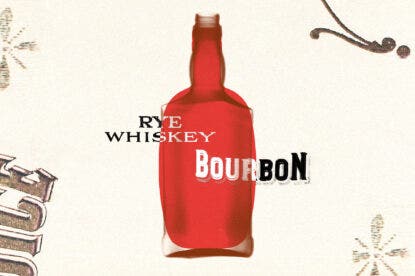The practice to sell wine before it’s bottled, commonly known as en primeur or wine futures, is well established across many wine regions like Burgundy, the Rhône Valley, Piedmont and Port. It’s in Bordeaux, however, where the en primeur system is of greatest importance in terms of volume, revenue and attention.
Each spring, the region welcomes wine buyers and critics who taste barrel samples from the previous year’s vintage. Through a well-established supply chain, consumers can purchase these wines, but the actual delivery occurs at least 18 months later when they’ve finally been bottled.
As with any investment, there’s an element of speculation with wine futures. Those who invest do so to secure high-quality wines at the best prices, but there’s no guarantee that they will be more expensive upon release.
While en primeur week in Bordeaux is one of the most anticipated events on the industry calendar, it’s still, first and foremost, work.
“You have to be incredibly organized. There’s a lot of ground to cover in not a lot of time,” says Rod Smith, a France-based Master of Wine who estimates he tasted around 500 wines in 2019.
These young wines are more ready to taste than you might think. “They are not too oaked yet, so you can assess the fruit, and assess them relative to one another,” says Smith.
The Union des Grands Crus de Bordeaux (UGCB) hosts a central trade tasting in the city of Bordeaux, while dedicated communal appellation tastings are also held. The very top estates show their wines increasingly at private tastings by appointment. “Some are harder won than others,” says Smith. “For example, it’s a no at Château Ausone or Pétrus unless you are an established buyer.”
Since it’s the first chance to assess a vintage’s personality, en primeur is an opportunity to gauge the industry’s initial impressions. Roger Voss, Wine Enthusiast’s European editor, says it’s especially important to American importers that need to determine whether the wines are marketable stateside.
Critics and some merchants then score the wines. The reviews identify star performers and under-the-radar estates. They can help consumers decide where to spend their money.

What about Burgundy’s en primeur?
Smaller in scale to its Bordeaux counterpart, Burgundy’s version of en primeur is also much more informal. While some producers may host private tastings for select importers and journalists in October and November in Burgundy itself, ‘Bourgogne Week’ events are also organized in London, Hong Kong and Tokyo.
In London each January, leading merchants invite clients and journalists to taste barrel samples at locations around the city. “Compared to Bordeaux, these wines are being shown at around 14–15 months of age,” explains Robin Kick MW, a Burgundy specialist.
How do you buy wine futures?
Traditionally, the en primeur system allowed producers to free up valuable storage space and finance the harvest before it was released. It also gave wine drinkers a chance to buy at attractive prices.
When it comes to purchasing en primeur in Bordeaux, a very traditional hierarchy exists. The top chateaus, via courtiers (who act as messengers), sell to négociants who supply wine merchants and importers. For the average consumer, the entry point is most likely one of the latter two. Wines are released in tranches, the French word for “slice.”
“The first tranche is often only sold to people who brought in previous years or commit to buying in bad vintages too, and the second tranche will be at a higher price,” says Smith.
To secure rare wines is another reason to invest in en primeur, particularly in Burgundy, where production can be minuscule. This scarcity, however, brings limitations of its own.
“Wines from good producers are highly allocated, so unless you are already on a list with a certain wine merchant and have a history of buying a specific wine, the likelihood of getting top collectable wines for the first time is slim,” says Kick. “Also, as more markets are opening up, allocations are becoming smaller, which contributes to greater prices.”
When buying en primeur wine in the UK, the biggest market for the Bordeaux campaign, it’s important to note the prices paid are “In Bond.” Taxes are applied when or if physical delivery is made.
Has the Bordeaux system lost its relevance?
Industry figures say that the era of dizzying return on investment is gone. “No one has made a substantial amount of money out of en primeur Bordeaux since 2005,” says Smith. “The [chateaus] are releasing at pretty hefty prices now.”
“In just over half of the campaigns since 2005, the wines have been cheaper at physical release than during en primeur,” says Justin Gibbs of Liv-ex, the global marketplace for the wine trade.
It’s not all bad news, however. “Buyers can still find value among individual wines,” says Gibbs. “For the 2016 vintage, for example, the returns of the individual wines ranged from [minus-] 33% to 109%.”
Voss cautions consumers to “be picky about the vintage you buy, unless it’s a small quantity production that you may never get again on the market, which is the case with some chateaus in Saint-Émilion.”
It’s also not in every producer’s best interest to participate in the en primeur campaign. The reasons may be as simple as ample storage to a desire to cut out the middleman. Château Latour exited the en primeur system famously after the 2011 campaign. It now chooses to release a vintage when it’s ready to drink. Château Angelus and Château Palmer are two other classified estates who have made public their intentions to increasingly hold back stock.
“Like anything, the value of an investment can fall as well as rise,” says Smith. “You should never buy wine unless you are ultimately prepared to drink it, as that may be what happens.”
Last Updated: May 5, 2023















